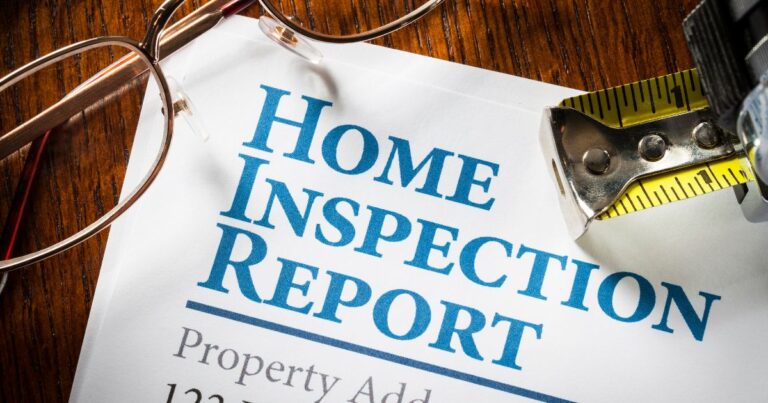When buying a home, many steps must be taken to ensure that the property you purchase is in good condition. An inspection of the home is one of the most important steps. A house inspection is a visual assessment of the building’s systems and components that aims to spot any potential issues or safety risks. This article will examine why home inspections are essential and what you should look for during the home inspection process.
Why Are Home Inspections Important?
A home inspection is an important step in the house-buying process and offers a number of significant advantages. Here are some of the most crucial justifications for why home inspections are crucial:
Identify Potential Problems
One primary reason for a home inspection is to identify potential problems with the property. A professional home inspector will examine the home’s structure, electrical systems, plumbing, HVAC, and other systems to determine any problems that may exist. This can include issues like leaks, mold, foundation problems, and more. Early identification of these issues can save you a significant amount of money and difficulties in the future.
Negotiate Repairs or Price Reduction
If the house inspection reveals issues, you can negotiate with the seller to have repairs addressed or to reduce the purchase price of the home. This can help you avoid paying for costly repairs yourself or walking away from the deal altogether.
Ensure Safety
A home inspection can also help ensure your and your family’s safety. If the inspection reveals issues with the electrical or plumbing systems, these can pose a safety risk if not addressed.
What Are Basic Things To Look for During a Home Inspection?
A home inspection can be a complex process, and knowing what to look for during the inspection is important. Here are some of the most important pointers to look for:
Structural Issues
During a home inspection, one of the most crucial things to keep an eye out for is whether or not the property has any structural problems. This includes cracks in the foundation, problems with the roof, and issues with the walls. These types of problems can be expensive to fix, so it’s important to identify them early on.
Plumbing and Electrical Systems
The plumbing and electrical systems in a home are also important to inspect. Look for signs of leaks, such as water stains on the ceiling or walls, and ensure that the electrical outlets and switches function correctly.
HVAC System
The HVAC system is another important area to inspect. Check to see that the heating and cooling systems are operating as they should, as well as the ducting and ventilation, to ensure that there are no problems.
Roof
Because it shields the home’s interior from weather and other hazards, the roof is one of the most essential features of a structure. During the home inspection, make sure that the roof is in good condition and free of leaks or other damage.
Foundation
The foundation of a home is also critical, as it supports the weight of the entire structure. Look for cracks or other damage that could indicate a problem with the foundation.
Appliances
If the home comes with appliances, make sure to inspect these as well. Test each appliance to make sure that it’s functioning properly, and look for signs of wear and tear.
Pest Infestations
Because organisms like termites and rodents are capable of causing substantial harm to a residence, it is essential to conduct a thorough search for indications of infestation during a home inspection. Look for droppings or chew marks, and pay attention to any musty or foul odors.
In addition to these specific areas, it’s also important to look for any other issues that may be present. This can include issues like water damage, mold, or other types of damage. It is also critical to note that not all issues will be readily visible during the home inspection, so it’s a good idea also to consider having specialized inspections performed, such as for lead paint or radon.
Choosing a Home Inspector
It’s critical to conduct research before selecting a home inspector. Here are some points to assist you in choosing the best house inspector:
Check Credentials
Make sure that the home inspector you choose is licensed and certified in your state. Usually, the inspector’s website or the licensing board can provide this information.
Read Reviews
To learn more about the inspector’s reputation and level of expertise, read internet evaluations.
Ask for References
Ask the inspector for references from previous clients and follow up with these references to get an idea of their experience working with the inspector.
Ask About Experience
Find out how long the inspector has been in business and how many inspections they have performed. More experience generally translates to a better understanding of potential issues and how to identify them.
Get a Sample Report
Ask the inspector for a sample report so that you can see what they will be looking for during the inspection.
Conclusion
When purchasing a property, a home inspection is a crucial step that should be taken seriously. If you spot possible issues at an early stage, you will save yourself a lot of money and avoid a lot of difficulties further down the line. Before deciding on a home inspection, you should make sure to undertake extensive research, and you should go with someone who is knowledgeable, experienced and has a good reputation. With a thorough home inspection and the right inspector, you can feel confident about buying a home.
FAQs
What is a home inspection?
A licensed and certified home inspector often conducts a home inspection to evaluate the state of a house. The inspector will examine various components of the home, such as the roof, foundation, electrical system, plumbing, and HVAC system, to identify any potential issues or safety hazards.
Why is a home inspection important?
A home inspection is important because it can identify potential problems with the home that may not be readily visible to the buyer. Early detection of these problems allows the buyer to decide on whether to buy the house or not and, if necessary, to bargain for repairs or a lower price.
When should a home inspection be done?
A home inspection should be done as soon as possible after a purchase agreement has been signed. This will give the buyer time to review the inspection report and negotiate any necessary repairs or price adjustments before the sale is final.
What should I expect during a home inspection?
Various aspects of the house, including the roof, foundation, plumbing, electrical system, and HVAC system, will be examined by the inspector during a home inspection. They will also check for signs of mold, water damage, and pest infestations. After the inspection, the inspector will provide a detailed report of their findings, including any issues that need to be addressed.
Can a home inspection be used to negotiate a lower price?
Yes, a home inspection can be used to negotiate a lower price or repairs from the seller. The buyer has the choice of requesting the seller to rectify any significant problems found during the inspection or negotiating a price reduction.
Visit our website ExpressMortgageQuotes.com to learn more.




